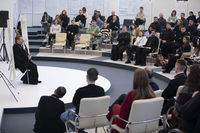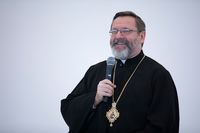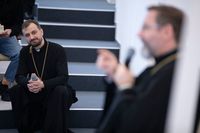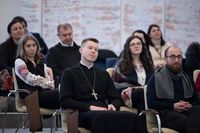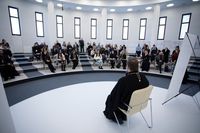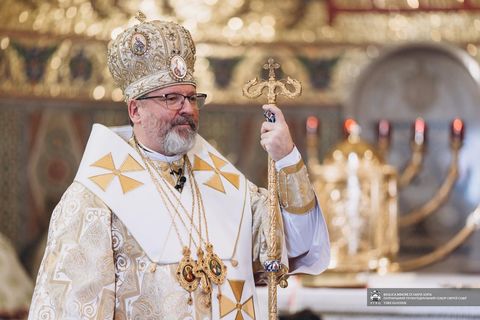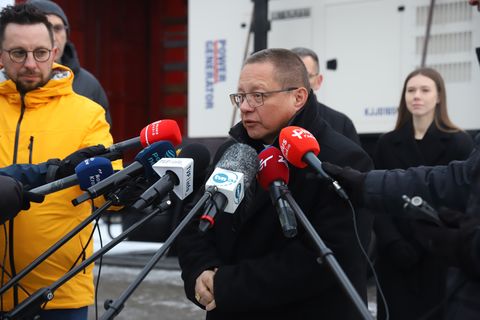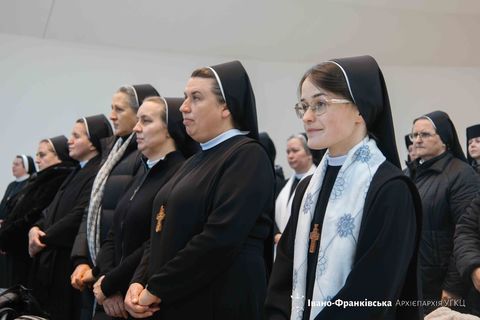“Youth ministry requires our fathers to be the most contemporary part of the Church: flexible, open, friendly” — Head of the UGCC
The Forum of Youth Pastoral Care of the UGCC, which was held in Kyiv on February 9–11, ended with the Hierarchical Divine Liturgy in the Patriarchal Cathedral of the Resurrection of Christ and a meeting of its participants with the Father and Head of the UGCC, His Beatitude Sviatoslav, which took place in the new Synodal Hall of the Patriarchal Center.
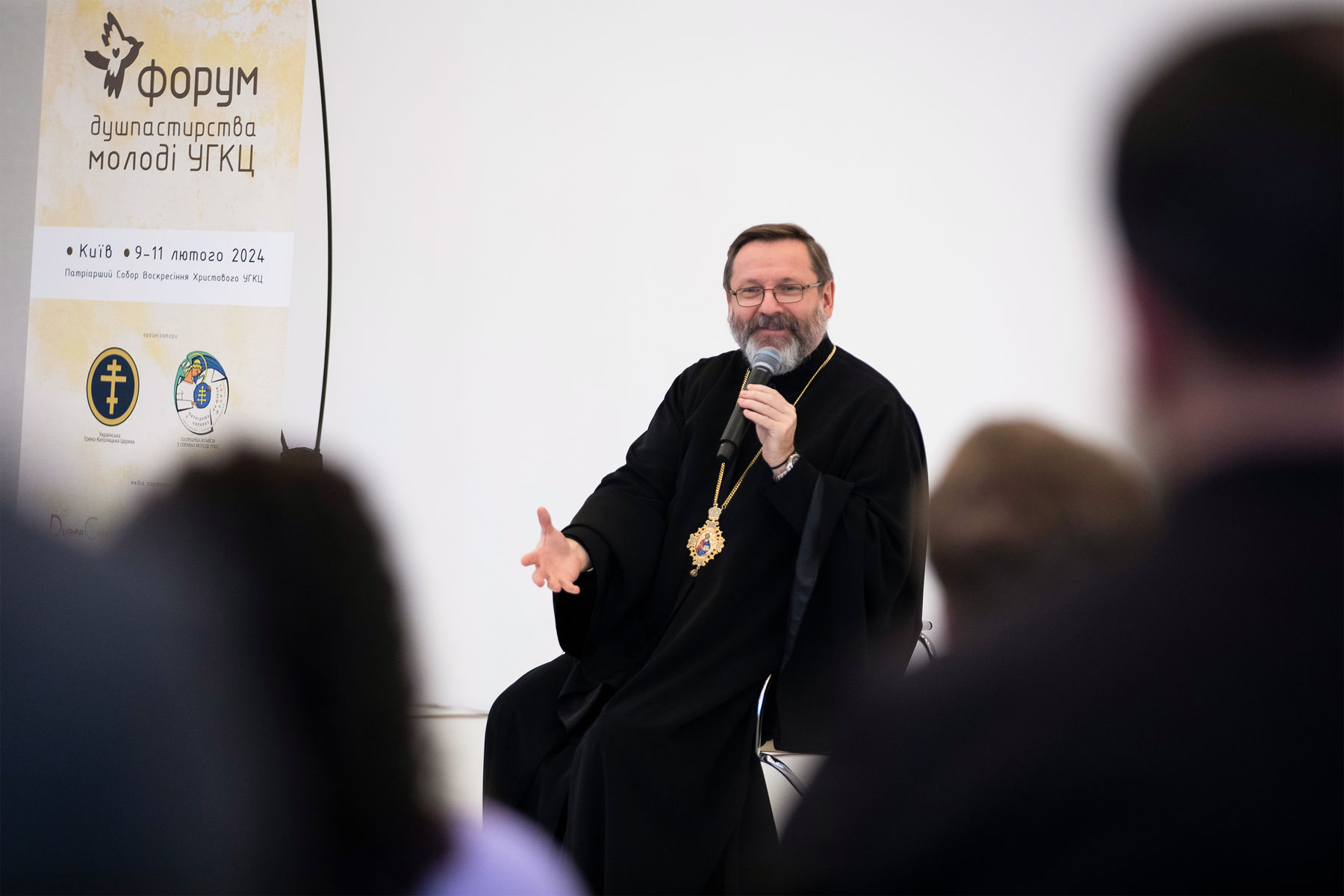
After a brief presentation of the results of the forum, the Head of the UGCC addressed the youth and those who minister to them.
“Thank you for choosing Kyiv for this meeting. God’s love for you is wondrous because we recently renovated the Synodal Hall. The history of this Patriarchal House will record that the first event in this Synodal Hall was a youth event.
Since the beginning of the war, Kyiv has been the number one target of enemy assaults. I am grateful to God that we can be here, live, and act because someone protects us with his chest. I am very thankful to the military who are holding off new attacks by Russian troops.
This hall displays a particular light and style — we are a Church that gives hope. It is a city and a site where something is destroyed every day, and we have to build. This Patriarchal House shows that we are projecting hope. One man told me that if you build something, there is a future.
Young people are not only our future but also our present. May God bless us so that we can share this light. Our hope is in God, and we have to project this hope. Therefore, I would like you to place these developments in the room you wrote down here.
Various young people often reach out to me, expressing their need for a spiritual mentor. Our youth seek spiritual guidance. In our current circumstances, young people occasionally form their own communities. However, this community cannot thrive without spiritual guidance. Therefore, we strive to recruit good priests who can respond to this demand.
I therefore thank you, dear fathers, for braving the challenge of becoming youth priests. This demanding ministry requires our fathers to be the most contemporary part of our Church: flexible, open, and friendly.
I know that the Patriarchal Commission on Youth Affairs will help you to constantly advance in your professional ministry. And it’s wonderful that now these formative retreats are open not only to the clerical layer of our Church, but to all the faithful.
Before planning, it is vital to listen first. I am grateful that the forum was prepared by listening. At the recent Synod of Bishops, the fathers presented the findings of this study. It was nice to hear what young people expect from the Church. They do not tolerate when someone plans pastoral care haphazardly and imposes their thoughts and ideas. Then young people feel unheard and begin looking for those willing to listen and hear them.
Listening to the voices of young people is the initial stage and should be the core of your ministry in various areas. We also need to be aware of the changes in how young people communicate and express themselves. And sometimes you have to learn to understand this.
Another feature is highly delicate and crucial: a young person is very vulnerable and has a fear of judgment that if they do not know how to do something or do not do something, it will be perceived as an accusation against them. There is no other kind of relationship between the Church and young people than love.
The final opinion, reiterated in different communities and age groups worldwide, is that we do not all realize that we live in a post-Christian society. And the sooner we realize this, the better. In a Christian culture, values were passed on in the family, school, and Church. Such times are gone. Therefore, any kind of pastoral care today must be evangelistic. We must understand that our youth sometimes need primary evangelization. There are whole generations who have not experienced any evangelization.
The next step after evangelization should be catechesis, which is the way of introduction into the sacramental life of the Church’s community, and thus accompanying the young person. The moment of catechesis must be present in our pastoral care. And the next stage of spiritual growth should be the mystagogic path, meaning the introduction into the mystery of the ineffable, eternal God, which is never completed.”
Afterward, participants had the opportunity to address their questions to His Beatitude Sviatoslav.
The UGCC Department for Informationbased on the materials of “DyvenSvit”
